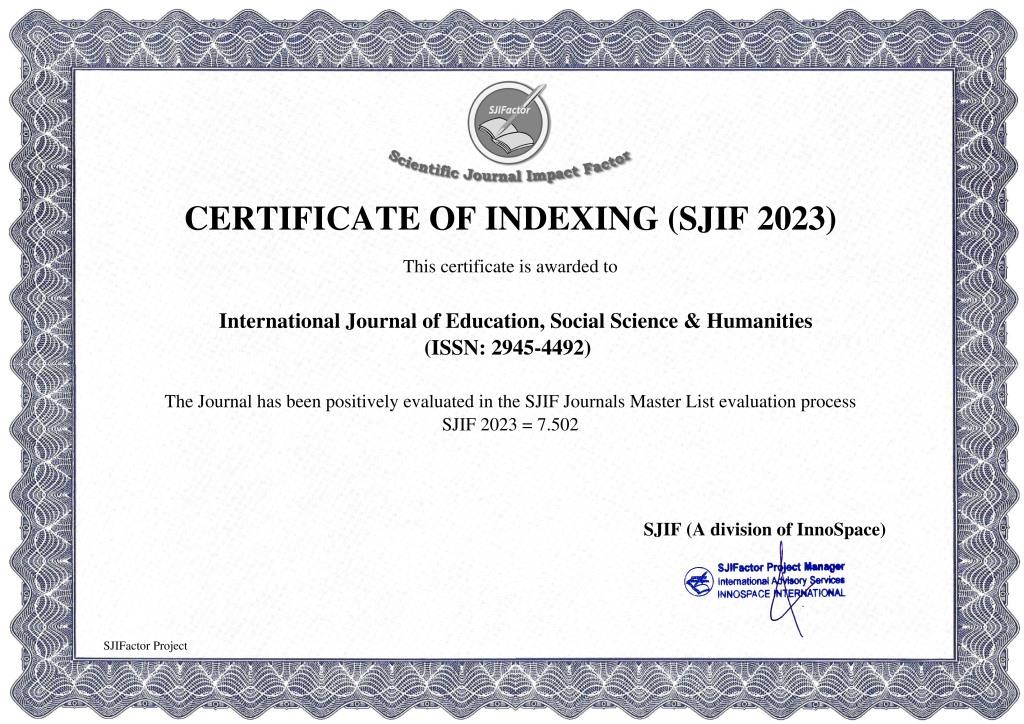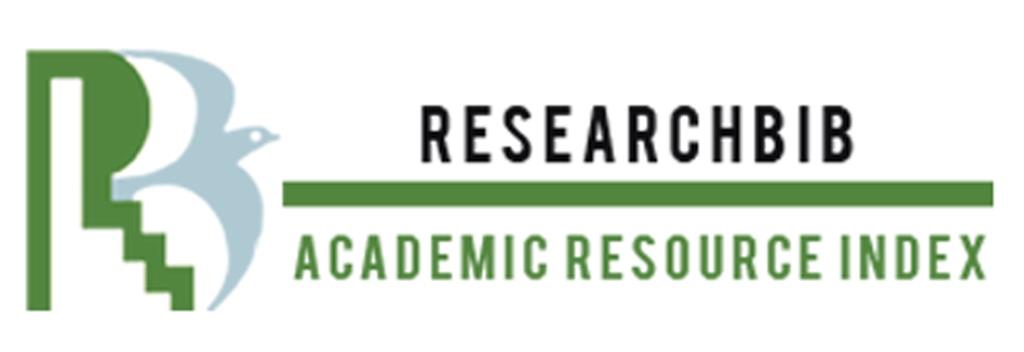THE INFLUENCE OF L1 (GERMAN) IN LEARNING ENGLISH LANGUAGE.
Keywords:
Interference, positive transfer, negative transfer, interferential mistakeAbstract
Interference happens frequently in foreign language education, and the teacher should be directed by the actualization regularities of linguistic systems in the minds of the students. Overcoming the interfering influence of the native language requires a thorough understanding of all native and learnt language aspects in comparison plan. The article discusses the role and significance of first (whose major language is German) language interference in foreign (English) language instruction. It covers the many varieties of interference from a linguistic and didactic standpoint. The author presents his experience, observations, and research on native language interference in teaching English as a foreign language to future native language teachers, as well as the most common errors in students' speech and techniques for correcting them.
References
Bhela, Baljit. “Native Language Interference in Learning a Second Language: Exploratory case studies of native language interference with target language usage.“ International Education Journal, vol. 1, pp. 22-31. 1999.
Dulay, Heidi, et al. Language Two. Oxford University Press, 1982.
Ellis, Rod. Second Language Acquisition. Oxford University Press, 1997
Erkinovna, Y. F. Negative Politeness. Journal of Critical Reviews, 7(6), 1249-1255. https://media.neliti.com/media/publications/344146-negative-politeness-c55f7abc.pdf.
G. Ya. Tojiyeva Native language interference in teaching English Uzbek students. ISSN: 1533-7812 Vol-21-Issue-05-May-2020
Kurbanov, S. (2022). МЕСТО КРИТИШЕСКОГО МЫШЛЕНИЯ В СОВРЕМЕННЫХ МЕТОДАХ ОБУШЕНИЯ ИНОСТРАННОМУ ЯЗЫКУ. ЦЕНТР НАУЧНЫХ ПУБЛИКАЦИЙ (buxdu.Uz), 18(18). извлечено от https://journal.buxdu.uz/index.php/journals_buxdu/article/view/7427
Lott, David. “Analysing and Counteracting Interference Errors.“ ELT Journal, vol. 37/3, pp. 256-261. 1983.
Richards, Jack C. Error Analysis: Perspectives on Second Language Acquisition. Longman, 1974
Saparova, M. R. (2019). PRINCIPLES OF FOREIGN LANGUAGE TEACHING. In Язык и культура (pp. 60-67). https://www.elibrary.ru/item.asp?id=42528624
Kurbanov, S. S., & Saparova, M. R. (2021). BADIIY ASAR JOZIBADORLIGINI OSHIRISHDA QARG’ISH ANGLATUVCHI DISFEMIZMLARNING PERSONAJLAR NUTQIDA BERILISHI. Academic research in educational sciences, 2(4), 1246-1251. https://cyberleninka.ru/article/n/badiiy-asar-jozibadorligini-oshirishda-qarg-ish-anglatuvchi-disfemizmlarning-personajlar-nutqida-berilishi
Saparova, M. R. (2016). The problem of stylistic classification of colloquial vocabulary. Міжнародний науковий журнал, (5 (1)), 80-82. https://www.inter-nauka.com/uploads/public/1505892674749.pdf#page=81
Saparova, M. (2022). Xolid Husayniyning “Ming Quyosh Shu’lasi” (A Thousand Splendid Suns) asarida qo’llanilgan yuklamalarning o’zbek va ingliz tillaridagi leksik-semantik va grammatik xususiyatlari. Центр Научных Публикаций(Buxdu.Uz), 18(18).Http://Journal.Buxdu.Uz/Index.Php/Journals_Buxdu/Article/View/7312
Yuldasheva Feruza Erkinovna. (2021). POLITENESS MARKERS IN SPOKENLANGUAGE. Euro-Asia Conferences, 37–40. Retrieved from http://papers.euroasiaconference.com/index.php/eac/article/view/528.
Yuldasheva, F. (2021). The Expression of Politeness Category in The Uzbek And English Languages. ЦЕНТР НАУЧНЫХ ПУБЛИКАЦИЙ (buxdu.Uz), 1(1). извлечено от http://journal.buxdu.uz/index.php/journals_buxdu/article/view/2835
Yusupov U.K. Theoretical bases of comparative linguistics. Tashkent: Fan. 2007. - 126 p.














